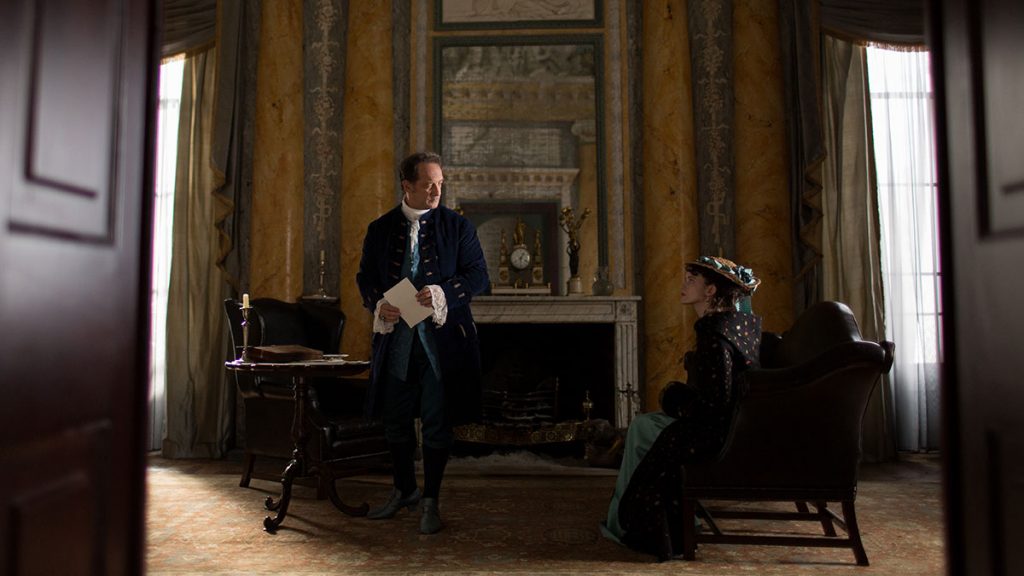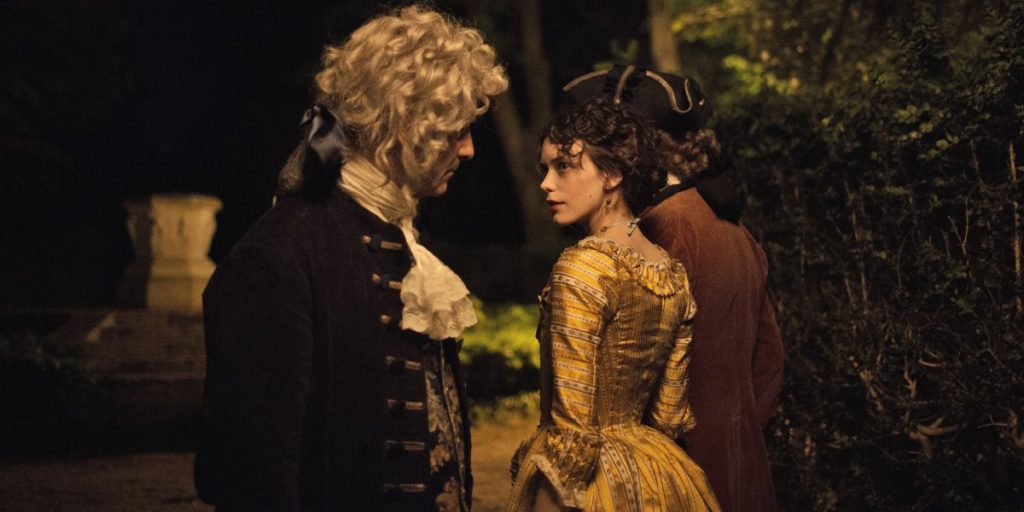Casanova, Last Love shows what happens when we confuse lust for love, through a heated courtship between a young girl and a man of age.
Casanova, heart robber and womanizer, has been the ultimate romantic ideal for many women throughout the century. Albeit a bit problematic from a feminist point of view, he is the ultimate bad boy on which many a novel, tv series and films are based. Who could ever forget Heath Ledger in Lasse Hallström’s 2005 film Casanova, where he plays a romantic and helplessly in love Casanova who tries to win the heart of Sienna Miller? Giacomo Casanova’s memoires, often signed with Jacques Casanova de Seingalt Vénitien, consist of an astonishing 12 volumes and over 6000 pages, enough to cover all the juicy bits of his criminal and sexual life. Still, it being Casanova, many directors and authors like to focus on the one woman that will tame his wild side and be his forever love.
Director Benoît Jacquot’s (À Tout de Suite, Les Adieux à La Reine) newest feature film does exactly that. Through the use of flashbacks, Casanova, Last Love details the courtship between a seasoned Giacomo Casanova (Vincent Lindon, The Measure of a Man, Anything for Her) and a young French prostitute called Marianne de Charpillon (Stacy Martin, Nymphomaniac – Vol. I, All the Money in the World) through the parcs and chateaus of London. An elderly Casanova is writing his memoires in former Bohemia when he is visited by the daughter of his patron. Eager to hear more on what he has written so far, she invites him to share the story of his one and ultimate unrequited love.
In a defeated and dispirited voice, Old Casanova, who is never clearly in view, takes her back to the streets of London in the late 18th century, where we meet Vincent Lindon as a young version of him. While Casanova goes to parties, visits friends, and makes new acquaintances, we can sit back, relax, and enjoy the stunning costumes and the drab aesthetic of London in the 18th century. Fresh from the European mainland, Casanova takes in the physical boldness of the Londoners and he, who apparently has standards, complains to his friends of the dire state of the city. Granted, the Londoners do seem suspiciously licentious and libertine compared to their usual stuck up and tight attitude, but Casanova’s hypocritical attitude, as we will come to know throughout the film, does not set his image of being an emphatic character off to a good start.

The first twenty minutes of Casanova, Last Love do their best to show depth of character in Vincent Lindon’s Casanova, as he tears up with emotion following a heartfelt recital by a former friend, and plays the respectful gentleman to all the women that he thinks are making advances on him. With his brooding eyes, taciturn demeanour and respectful distance, Vincent Lindon might do honour to the persona of Casanova, who can turn into a lust-crazed lover at random and for short-lived moments. For depicting a man forever in search of temporary love, the film’s easy attitude to casual sex paints a bit too much of a careless picture that seems closer to portraying a sex addict than a romanticist.
Though Casanova was supposedly quite a handsome man, I found it quite sexist that almost every woman Casanova seems to lay eyes on is lusting after him. Not to speak at all about the abundancy of nude women in the film, nor about the lingering direction of the camera, which both disgusts and excites our Casanova. Even-though he seems to meet his match in the charming, confident, and surprisingly seducing Marianne de Charpillon who lures him into a tantalizing game of court-but-not-kiss, the Charpillon we see on screen is still from Casanova’s point of view. Whether Casanova not-so-accidentally walks in during Charpillon’s shower or when he is watching Charpillon take another man to bed, Charpillon is always portrayed as a lustful object who is denied privacy from the male eye, and the viewer. With the promise of a night well spent, Casanova throws himself into an abstinent ‘courtship’ with Charpillon while also taking any opportunity he gets to try and kiss her, or do much more than that.
It leads me to wonder what the narrative direction of Casanova, Last Love is in the end. Is it to show how that the mighty Casanova has finally fallen for an equally good seductor, or how lust can be very easily confused with love? Throughout the film, and the few conversations Casanova and Charpillon do have, they seem to spend more time on their double entendres than on actually getting to know each other. With the added result that, though both are leading characters, they hardly develop further than the extras on screen. Come to think of it, even-though Vincent Lindon is the main character, it is Stacy Martin who steals the show with her siren-like portrayal of Marianne de Charpillon. From her coquette laughter and affluent flirtations, she is certainly having the upper hand in both their on-screen relationship and their acting.
The visible age difference between Casanova and Charpillon is not just in the costume design and make-up, there is also an age gap of a bit over thirty years between the two actors. This difference in age might break the stigma surrounding sexual relationships of all ages, but the reference to Casanova having met Charpillon when she was a little girl makes it uncomfortable. Her subsequent admission that he has indeed intrigued her since then makes the film venture a bit more into Nabokov’s Lolita territory. If Casanova, Last Love did not seem to have quite a strong softporn-men-would-enjoy vibe, the sexualisation of Charpillon’s obsession might have been remedied a bit. Only the final scenes of the film show Casanova’s vulnerable and emotional side, when we see a man being weakened by his own weakness. The dramatic nature and violence of a man not getting what he wants, especially sexually, provides such a sudden and startling outpour of emotional catharsis for Casanova that confirms his portrayed image of a woman-objectifier. What could have been an interesting exploration of Casanova’s emotional overturn and the changed man he becomes is sadly heavily tinted by its modern-day context.
Casanova, Last Love is now available to watch on digital and on demand. Watch Casanova, Last Love!

